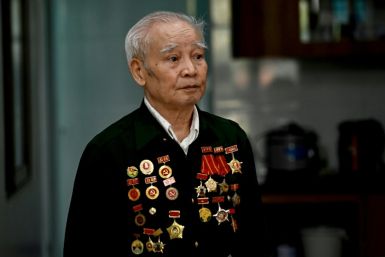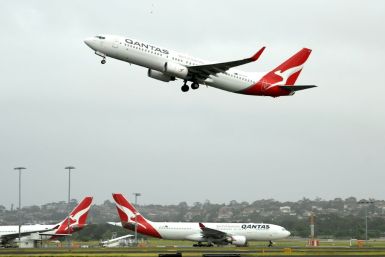Mini Cooper JCW GP Review
Our Rating:
As a road car, the Mini Cooper JCW GP makes a great track weapon.
A 2000-unit limited edition - of which 50 have arrived locally, with our test car numero uno - the GP edition tightens the screws on the already-mental John Cooper Works (JCW) flagship Mini, itself a sportier version of the Cooper S.
By Mini's own admission, the $56,900 Cooper JCW GP is engineered with a racetrack focus. That means the addition of adjustable coilover suspension with dampers that "increase longitudinal and lateral stiffness" compared with the regular JCW, increased front and rear camber, and front wheel toe-in, six-piston fixed callipers and a more relaxed 'GP Mode' for the stability control.
All the changes that you can see and feel include 17-inch light alloy wheels, GP badging on the bonnet scoop and front doors, a rear spoiler claimed to reduce lift forces by 90 per cent, snug Recaro front seats, leather-topped dashboard, and no audio or cruise controls on the steering wheel - well, no cruise at all. Nor is there proper iPod connectivity, as BMW demands a unique (optional) cable, and the characterful Mini cabin is starting to feel its six-year vintage, with plasticky controls and a small dot-matrix display standard.
The GP is also a two-seater with a bloody large boot. The rear seat is deleted, replaced by a single-bar brace to help increase body stiffness and, by extension, handling prowess.
But the addition of a few of the above items may help with race track performance - the GP lapped the Nurburgring in 8:23 minutes, eight seconds quicker than the regular JCW, but 15 seconds slower than a Megane RS 265 - but it has also resulted in a sharp decrease in liveability.
The suspension in the regular JCW is hard, but the GP is hardcore. Over urban roads it fidgets and jolts. At speed on country roads it thumps and bounces. It is creditable that such a little car can hammer over wrecked roads at pace and remain seemingly glued to the surface, but it isn't very comfortable for the driver.
Nor does this fastest-ever Mini offer much mid-corner composure over craggy roads. Despite the inclusion of independent rear suspension, the JCW GP hops and skips sideways over nasties mid corner, erasing driver trust. A Megane RS has a supposedly less sophisticated torsion beam rear suspension - which essentially connects each back wheel via a single rod, meaning one wheel is affected by the other - yet it curiously has a much higher level of control on rough roads.
The JCW GP is also one of the noisiest new cars currently on sale. No doubt due to the deletion of the back seat, which in most cars normally compensates for insulation in the rear wheel arches, this Mini is deafeningly loud on coarse chip roads.
It probably doesn't help that we drove the Mini Cooper JCW GP over some of the worst roads in the country - in the Hunter Valley of NSW, where the goodness of wine is in equal proportion to the badness of bitumen - but any twisty roads within cooee of Sydney (and other states) have similar problems. Which means GP drivers really need a race track.
Either that, or find glass-smooth twisty roads, because it's there the Mini JCW GP shines.
Its 1.6-litre turbocharged four-cylinder engine produces 160kW and 260Nm (or 280Nm on overboost), to push just 1160kg of Mini from standstill to 100km/h in 6.3 seconds. Teamed with a beautifully slick, short-throw six-speed manual transmission, the engine and gearbox duo in the Mini Cooper JCW GP are an absolute delight. The engine sounds great, too, with a deep, warbly engine note complemented by a backing track of pops and farts from the exhaust when the throttle is lifted.
The steering is so incredibly sharp that it requires attention and minute inputs into corners. That sensitivity - sneeze on the freeway and you'll change lanes - would be a negative in a normal family hatchback, but in a car as sporty and agile as a Mini, it's completely harmonious.
All the race-bred suspension technology added to this Mini makes it one of the quickest cars point-to-point (on dry, smooth roads) regardless of cost. The gearing of the manual gearbox is so short that we found 35km/h-signposted corners had the engine revving either too hard in second gear, or off-boost and lagging in third. That was at least until we realised the Mini begs for higher corner entry speed, which means tackling those bends in third and keeping revs above 4000rpm for a slingshot exit.
Do that, and giggle-worthy cornering is there to be exploited.
The stability control 'GP Mode' is terrific, too, subtly braking a spinning inside wheel mid-corner, but, Mini claims, never cutting power. It doesn't work quite as well as a mechanical limited-slip differential - a la Megane RS 265 - but it still works damn well.
Short gearing also means the Mini is revving at 3500rpm in sixth gear at 120km/h, which could be to the detriment of economy. Yet an initial highway run had the trip computer showing 6.1L/100km, and even after a sub-1000km blast through the countryside, overall consumption tallied 8.5L/100km.
Light weight really does pay dividends in all areas.
Aggressively tight suspension and ripping noise insulation out of a production car does not, however.
As superb as this JCW GP is on smooth roads, many cheaper competitors (yes, we'll mention the Renault Sport once again) are more talented both in terms of dynamics and overall ability. Similarly priced rivals (like the Mitsubishi Lancer Evo X) offer greater pace and panache.
If this were a track test then we'd swoon, but the fastest-ever Mini is otherwise too compromised for victory in a road test.
More Reviews from Car Advice >>






